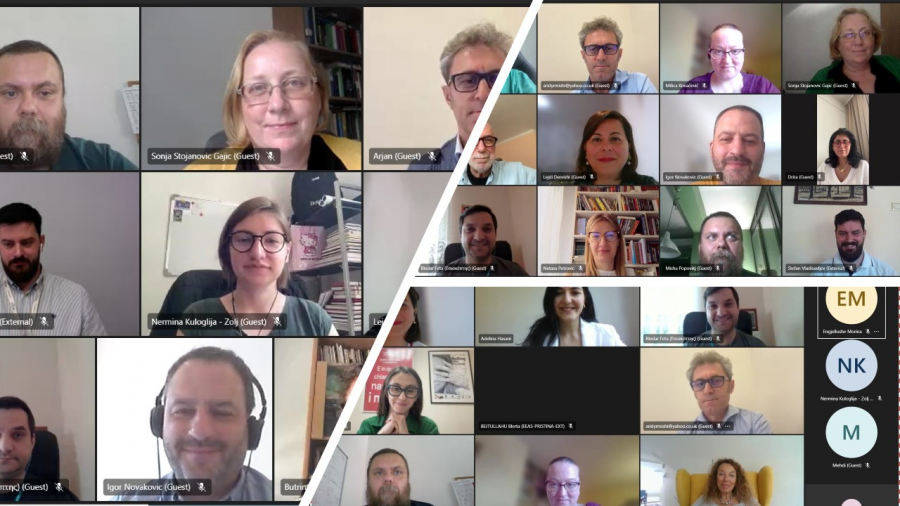7/08/2023

Prishtina, June 14, 2023: During the first online consultation meeting of the thematic working group on security and geopolitics, with a focus on regional security cooperation in the Western Balkans the main point of discussions included the overall state of play and key challenges to regional security cooperation, as well as identification of priority areas and opportunities to improve the current situation. The meeting started with a general introduction from the KCSS personnel about the upcoming Tirana 2023 Civil Society and Think Tank Forum of the Berlin Process and the goals of the TWG on Security and Geopolitics. Also, during the meeting members of the core group of the TWG on Security and Geopolitics, were introduced and they included: Arjan Durmishi, Lejdi Dervishi, Misha Popovikj, Stefan Vladisavljev, Nermina Kuloglija-Zolj, Adelina Hasani, and Milica Kovačević. This was followed by initial inputs or remarks from six members of the core group of the TWG on Security and Geopolitics from WB6, each presenting the view from their respective countries on regional security cooperation, as well as key issues in their respective fields of expertise. The meeting concluded with a general framework of key priority areas for regional security cooperation, such as countering malign foreign influence, corrosive capital and foreign investments, organized corruption, etc. Discussions also focused on issues such as organized corruption, screening of foreign investments, the malign influence of Russia and China, but not only, the issue of political extremism and growing trends of nationalism what these mean for interethnic relations in the region, lack of integration of Kosovo in all regional cooperation mechanisms, and how this disrupts cooperation, etc.
Prishtina, June 23, 2023: During the second online consultation meeting of the TWG on Security and Geopolitics, the focus was on identifying concrete challenges for greater regional security cooperation in the Western Balkans. Some participants expressed optimism regarding the potential for increased understanding and cooperation among security organizations/institutions in the region, while others acknowledged potential resistance at the operational level, hindering the integration of regional security cooperation. Alongside organized corruption, the role of Russia as a malign actor was highlighted, and some participants argued that it has now extended its engagement to political actors beyond the traditional spectrum, leveraging energy dependence as a means of fostering cooperation. However, it was also noted that Russia's influence has experienced a decline due to pressure from Western partners. Concerns were raised about the potential debt burden of infrastructure projects in China. One of the key conclusions from this meeting was the need for the WB governments to align with the EU’s investment screening regulation.
Prishtina, June 30, 2023: The third and final online consultation meeting of the TWG on Security and Geopolitics focused on policy recommendations for improving regional security cooperation. During the meeting, participants emphasized the importance of trust, understanding, and reconciliation in fostering successful regional cooperation. In this context, the EU needs to increase funding or establish a specialized program for supporting reconciliation efforts in the region, as it did in the case of Northern Ireland. The need to strengthen media resilience and capacities to fight disinformation were emphasized as essential to countering malign foreign influence, which in the WB is aimed at undermining the Euro-Atlantic integration process. In addition to this, the EU needs to increase support for the governments in the region that have aligned with the EU’s CFSP, to deal with the economic consequences of the alignment for the respective countries. There was a consensus among the attendees regarding the pressing need to enhance security frameworks, legislation, and human capacities in the region. The recommendations arising from the discussions emphasized the importance of fostering trust, promoting reconciliation, and strengthening governance and legislative frameworks to ensure regional stability and progress.